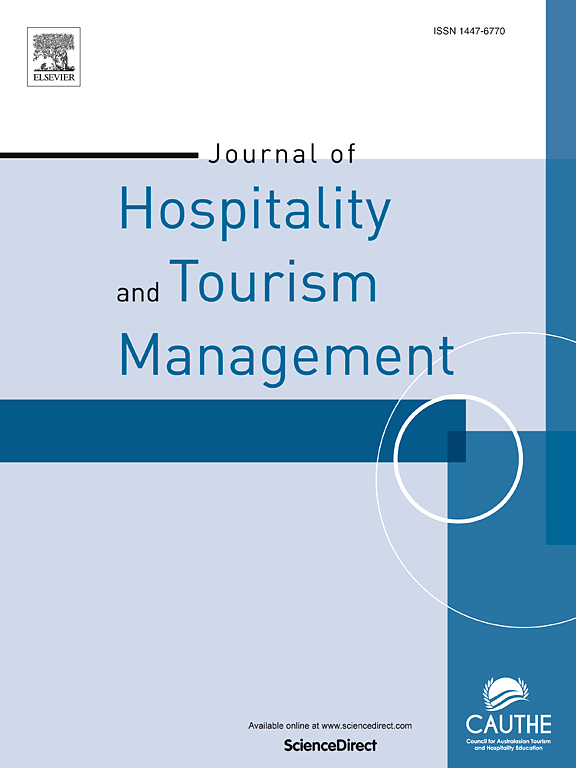绿色认证的双刃剑效应。来自在线旅游平台的经验证据
IF 7.8
1区 管理学
Q1 HOSPITALITY, LEISURE, SPORT & TOURISM
引用次数: 0
摘要
近年来,全球环境的重大变化和资源的过度消耗,凸显了可持续发展的紧迫性。为了解决紧迫的环境问题,许多在线平台都引入了绿色认证。对于酒店来说,平衡环境保护和顾客的反应——在绿色认证和网上声誉之间做出选择——是至关重要的。然而,绿色认证对酒店在线声誉的影响,特别是在客户青睐绿色酒店的情况下,需要进一步分析。本文引入了信号理论和期望失确认理论的理论分析框架,并利用领先在线旅游平台的数据构建准实验,对绿色认证的影响进行了严谨的实证分析。调查结果显示,绿色认证对在线声誉有复杂的影响,它显著提高了酒店评论的数量和平均评分。这种评论的增长是由更大的用户两极分化所推动的,其标志是正面和负面反馈的显著增加。具体来说,独立的、低档的酒店通常处于不利地位,相对较少的差评会给他们带来更多的好处,而高档的连锁酒店则面临更大的风险。利用酒店收入数据和客户层次分析的进一步分析进一步强化了结论。针对以往从消费者角度讨论绿色认证好处的研究,本研究考虑了绿色认证对在线声誉的双刃剑效应。研究结果为酒店有效实施绿色实践和平台推广绿色行为提供了有价值的见解。本文章由计算机程序翻译,如有差异,请以英文原文为准。
The double-edged sword effect of green certification. Empirical evidence from an online travel platform
In recent years, significant changes in the global environment and resource over-consumption have heightened the urgency for sustainable development. To address pressing environmental issues, many online platforms have introduced green certifications. For hotels, balancing environmental protection with customer response—choosing between green certification and online reputation—is crucial. However, the impact of green certification on hotels' online reputation, particularly in scenarios where customers favor green hotels, requires further analysis. This paper introduces the theoretical analytical frameworks of signaling theory and expectation disconfirmation theory, and conducts a rigorous empirical analysis to investigate the effects of green certification by constructing a quasi-experiment using data from leading online travel platforms. The findings reveal that green certification, which has a complex impact on online reputation, significantly boosts both the number of hotel reviews and average ratings. This increase in reviews is driven by greater customer polarization, marked by a notable rise in both positive and negative feedback. Specifically, independent, low-class hotels, which are typically disadvantaged, benefit more from relatively few negative reviews, while high-class, chain hotels face greater risks. Further analysis utilizing hotel revenue data and customer level analysis further strengthens the conclusions. Addressing previous studies that discuss the benefits of green certification from the customer perspective, this study considers the double-edged sword effect of green certification on online reputation. The results offer valuable insights for hotels to implement green practices effectively and for platforms to promote green behaviors.
求助全文
通过发布文献求助,成功后即可免费获取论文全文。
去求助
来源期刊
CiteScore
13.30
自引率
8.40%
发文量
177
审稿时长
45 days
期刊介绍:
Journal Name: Journal of Hospitality and Tourism Management
Affiliation: Official journal of CAUTHE (Council for Australasian Tourism and Hospitality Education Inc.)
Scope:
Broad range of topics including:
Tourism and travel management
Leisure and recreation studies
Emerging field of event management
Content:
Contains both theoretical and applied research papers
Encourages submission of results of collaborative research between academia and industry.

 求助内容:
求助内容: 应助结果提醒方式:
应助结果提醒方式:


